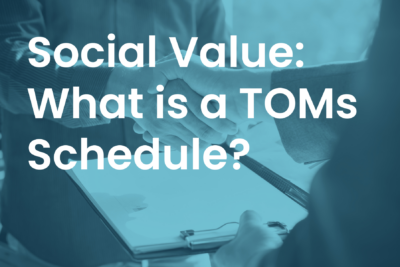
Caution and qualification are essential aspects of any bid process. Learning to say ‘no’ to more bids than you say ‘yes’ to will see your win rate increase. Don’t bid for everything; be diligent and discerning. You should do this because:
- You need to distinguish between winnable and unwinnable bids: most bids will not be right for you.
- You will spend more resources than you can afford for no guaranteed return.
- Churning out bid after bid and losing all the time will damage team morale.
- Enthusiasm, personal investment, and attention to detail will suffer across the board.
In this blog, we’ll explain how to ensure that when you bid, it is for the correct reasons and in a manner that maximises your success.
Internal Pre-Qualification: The Most Important Stage of Any Bid
An internal pre-qualification process is essential to deciding whether to respond to an opportunity and ultimately ensure long-term successful bidding. Whilst it would appear to be time spent for no immediate gain, proper pre-qualification can save you hours of wasted time and resource.
Pre-qualification ensures you don’t bid for contracts you can’t win; causing stress on your team without positive outcomes, and potentially causing you to miss other, more suitable opportunities.
Your pre-qualification process should begin with a meeting of your main internal stakeholders to discuss the opportunity, pool information, and make an informed bid/no-bid decision.
Team
You need to establish whether your organisation has the right team for the bidding process itself, and for delivery of the service in question.
If you do have team members who fit the bill, you need to then establish whether they have the capacity to commit themselves. Your chosen team should be fully focused on the bid, or following successful bidding, on delivery. If a member is already up against it, they aren’t fit for the job, even if they have perfectly aligned credentials.
Compliant
Are you bid compliant? Every bid will come with a host of pass/fail requirements. Failing on one will likely disqualify your submission.
A thorough pre-qualification will clarify the necessary accreditations, financial thresholds, insurances etc., meaning you don’t waste time responding if you fall short.
The devil is often in the detail with tender documents, so properly scrutinising to ensure your organisation is compliant is always worth the time.
Competitors
Consider who you might be competing against. If lots of organisations are bidding and you are making up the numbers, your chances will be lowered, especially if the competitors outdo you in experience, resources, or are trusted incumbent providers.
Service
Consider whether the services required truly align with your own organisation. Make sure your technical ability, experience, and strategic direction align with the tender. You need to get full-team buy-in so make sure everyone is on the same page before proceeding.
Location
This is simple and obvious but still gets forgotten by some: if you cannot deliver services because the contract is based at the other side of the country, do not bid.
Even if you could, why create added hassle when you could aim your sights closer to home. You will often be surprised at the number of opportunities found locally, even in relatively out-of-the-way areas.
Time
Will you have to spend more time than it is worth to win the bid or to mobilise once you do? It is relatively easy to quantify the maximum time you should spend by comparing resources, wages and time spent against the projected value of the contract.
Resource
Can you mobilise efficiently enough to stay profitable? Will channelling resources into project X be at the expense of project Y? Don’t get giddy and spread yourself too thin.
Money
Whether you bid in-house or use external help, the process will always have costs. By diverting attention, you might neglect current clients or pass on other opportunities. Pre-qualification is about understanding the total cost of bidding to your organisation.


